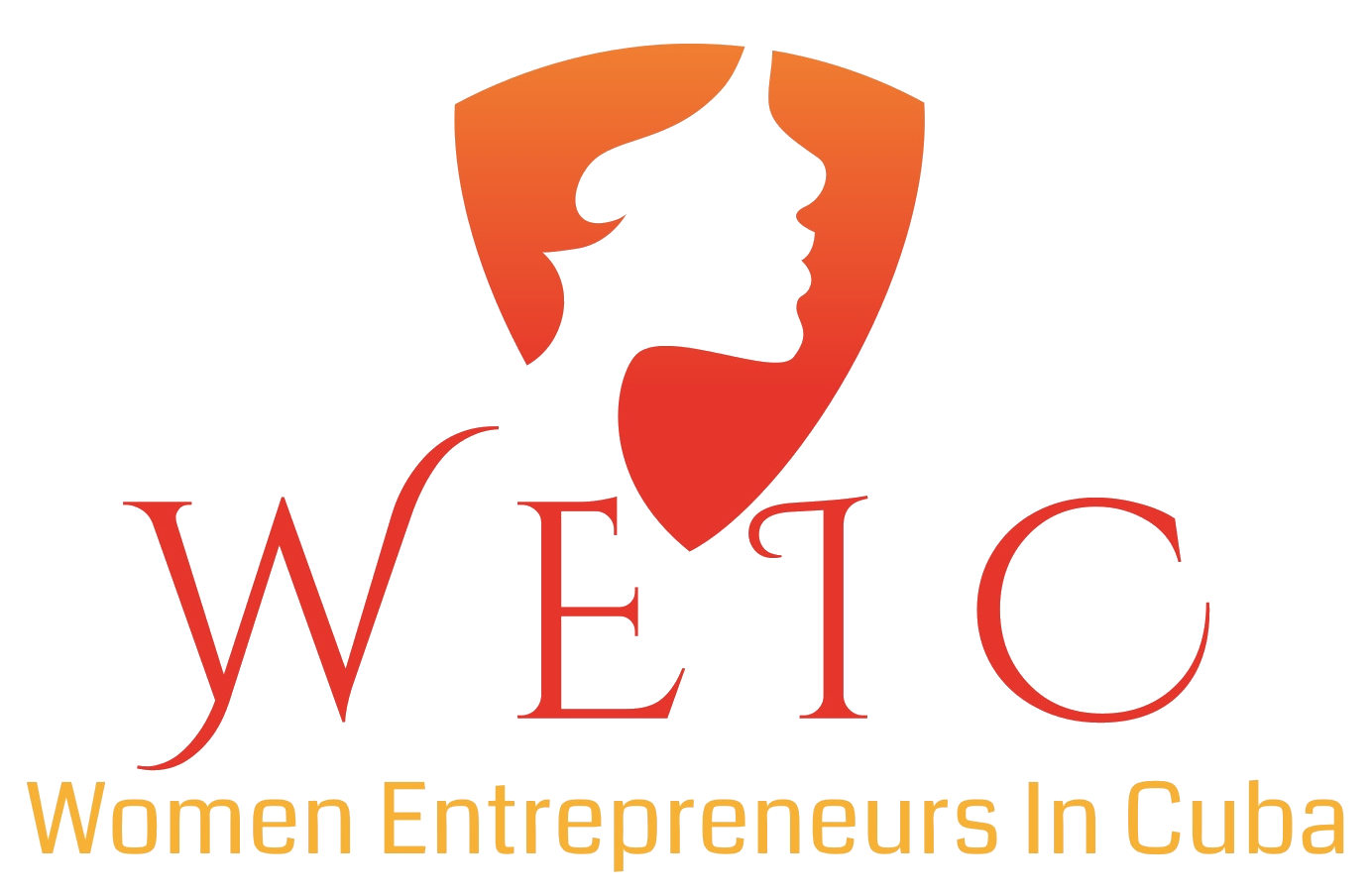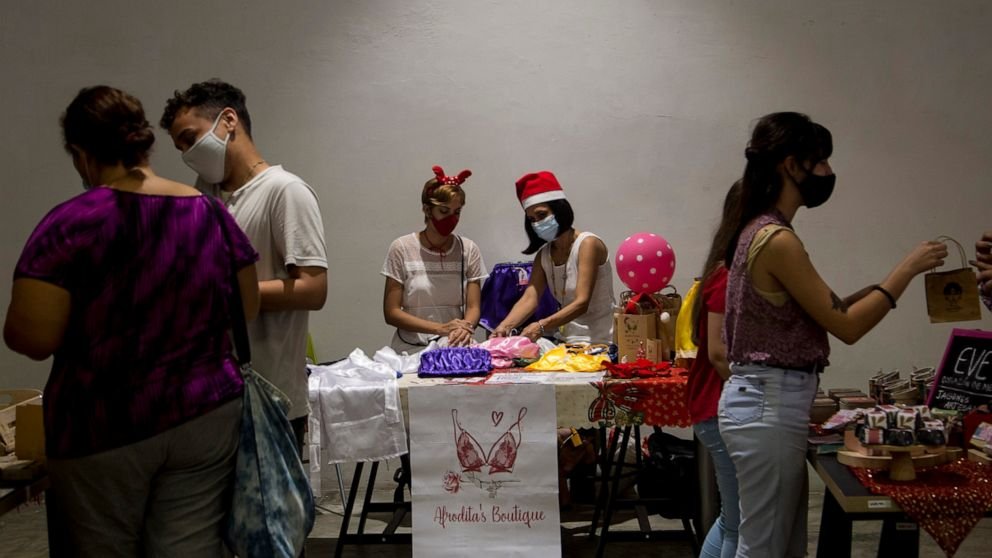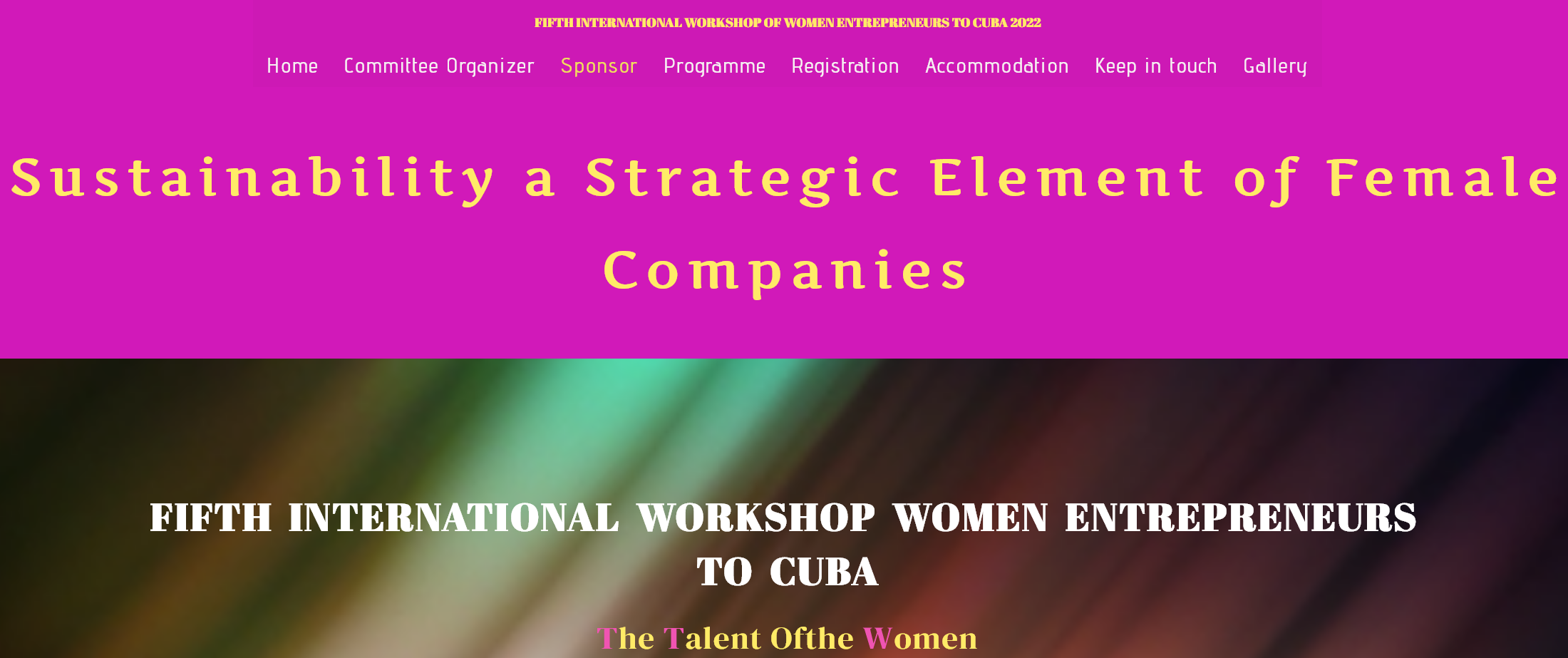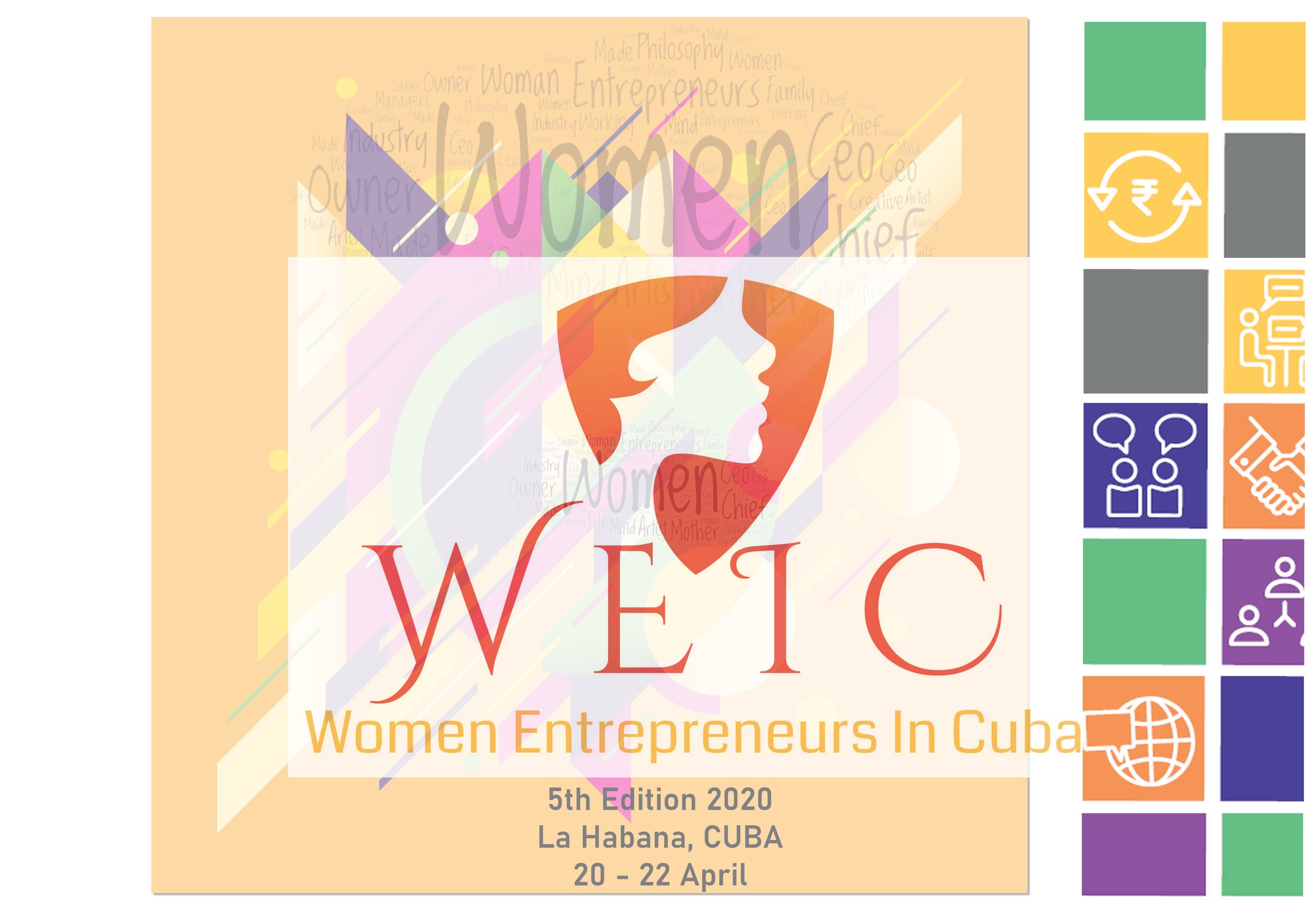Why Is National Security Council (NSC) In The White House Refusing To Permit U.S.-Based Investors/Financiers To Directly Support Women-Owned (Or Men-Owned) Businesses In Cuba? State Dept. Complicit?
/Associated Press
New York, New York
5 January 2022
HAVANA (AP) — Cuba was an early leader in recognizing women’s rights and equality after Fidel Castro’s revolution in 1959. Women were put in positions of power and responsibility, and the government legalized abortion and created day care centers, steps that allowed women to join the workforce alongside men. Yet Cuban women who are seeking to take part in the island’s gradual opening to independent small businesses say they are facing unique challenges put up by a patriarchal society that favors men and male-owned businesses.
At a recent business expo for women entrepreneurs, Natalhie Fonseca, owner of Carrete, an online enterprise she started to make and sell handmade decorations for children’s rooms, said women are held back by Cuban society’s expectations that they also be homemakers. Fonseca said she rises at dawn, washes, cooks, takes care of her two girls, cleans, and works part-time in her husband’s coffee shop, in addition to working on her own business. “Twenty-four in a day are not enough,” she lamented. ”If we had a little help.”
AIynn Torres, a researcher on gender issues at the Rosa Luxemburg Foundation, said that while Cuba “made a very big leap” in the 1960s and ’70s in bring women into the workforce, its efforts have stagnated. She said 60% of Cuba’s university graduates are women, but they mostly end up in the least paid economic sectors, such as education or social assistance. Women account for only a third of self-employed workers in Cuba, whose economy is still largely state-run businesses, and they make up just over 20% of the owners of small- and medium-size businesses, according to official figures. “Conscious and systematic state actions, not only words, are absolutely essential to ensure the greater participation of women,” Torres said. She said there should be more credit available for women business owners and more done to care for children, the sick and the elderly, which are responsibilities that now fall mainly on Cuba’s women.
Battered by low economic productivity as well as the obstacles presented by the U.S. embargo, Cuba’s government a gradual opening of the private sector during the last decade. Then President Raul Castro added licenses to open private businesses, legalized real estate transactions and the sale of unused land, and made credit more accessible, among other measures. According to official figures, in 2020 there were 602,000 self-employed Cubans, some of whom have started their own businesses. About 210,000 of them were women.
In September, current President Miguel Díaz-Canel approved the creation of privately owned businesses — something that was once inconceivable after authorities closed all privately owned business on the island in 1968. In the five months since, licenses have been granted for 1,014 additional private businesses, 22% of them for women. But theory ran into practice for Ena María Morales, who wanted to grow plants needed for her business to make all organic handmade soaps. She said male farmers resisted her efforts to acquire the raw materials. “That was my first confrontation with a macho world,” she said. ”... The men would say to me, ‘You with that long hair, no, no, no.’”
The COVID-19 pandemic also has been an impediment for many women hoping to start their own businesses. With their children at home because of cancelled schools and husbands or partners marching off to work, many struggled to find time for entrepreneurship. “It is a very new thing that women are joining little by little and I hope that soon that will really change, because although we are the directors of the house, there are many empowered women,” said Ana Mae Inda, who sells children’s clothes.
Women of color said race is yet another difficulty in opening up businesses. “Being a woman and being Black means that we face certain barriers, not only in the social world but also within the entrepreneurship itself,” said Yurena Manfugás at the clothing shop she opened with her mother, Deyni Terry, to cater to Afro-Cuban women. Terry, a lawyer and women’s activist, said the real problem is Cuba’s social construct. “The constitution of the Republic of Cuba continues to speak in the masculine. ... We come from a totally sexist culture,” she said.
LINK: 2022 Fifth International Workshop Of Women Entrepreneurs To Cuba
Biden/Blinken/Obama Statements Supporting Entrepreneurs In Cuba
On 18 July 2020 to The Washington Post by Joseph Biden, then candidate for the presidential nomination of the Democratic Party: “I have no illusions about the situation in Cuba, and it’s deeply concerning that the Cuban government continues to assert strong political and economic control while failing to respect press freedom and the freedom of assembly,”… “But Cuba is not represented solely by its leadership. There are many different sectors that we can and should work with to support progress in Cuba- including entrepreneurs, religious groups, universities, young people and human rights defenders.”
In a press statement on Cuba’s Independence Day, directed to the 11.3 million citizens of the 800-mile-long archipelago, The Honorable Antony Blinken, United States Secretary of State (who in the Obama-Biden Administration (2009-2017) served as Deputy Secretary of State from 2015-2017 and Deputy National Security Advisor from 2013-2015), expressed United States support for Cuba entrepreneurs: “The United States recommits to accompanying the Cuban people in your quest to determine your own future. We will support those improving the lives of families and workers, cuentapropistas who have forged their own economic paths, and all who are building a better Cuba- and a better tomorrow for themselves in Cuba.”
Secretary of State Blinken was, in his remarks, reiterating the bipartisan conviction of every United States president from Obama-to-Trump-to-Biden that the United States should “support the development of private business and [the] operation of economic activity in the non-state sector by self-employed individuals,” as that language is codified at 31 CFR § 515.570(g)(3).
Such a position would accord with the Biden-Harris Administration’s reiteration of support for cuentapropistas, as articulated by Secretary Blinken on 20 May 2021, and previously espoused by then-United States President Barack Obama (when now President Biden was then Vice President Biden) when he said in the Gran Teatro de la Habana on 22 March 2016: “In a global economy, powered by ideas and information, a country's greatest asset is its people. In the United States, we have a clear monument to what the Cuban people can build: it’s called Miami. Here in Havana, we see that same talent in cuentapropistas...And in recent years, the Cuban government has begun to open up to the world, and to open up more space for that talent to thrive. In just a few years, we’ve seen how cuentapropistas can succeed while sustaining a distinctly Cuban spirit.”
LINKS To Self-Employed, Micro, Small & Medium-Size Enterprise (MSME) Analyses
President Biden Rejects BIS License Application To Export Electric Vehicles/Chargers To Cuba's Self-Employed, MSME's. Reversal Of "General Policy Of Approval." President Trump Authorized EV Exports. December 20, 2021
Cuba Again Expanding MSME Authorizations To Include Accessing Foreign Capital, Foreign Bank Accounts, Local Development Projects Qualify. December 02, 2021
Why Won't Biden Administration Permit U.S. Entities To Invest/Finance MSMEs? In December, Cuba’s FIMELSA Begins Convertible Currency-Equivalent Loans At 6.5% For 120 Days; Lower For CUP. November 25, 2021
Update: More Than 700 Micro, Small And Medium-Sized Enterprises Approved In Cuba November 25, 2021
OFAC & BIS To 107 Tech Companies? Cuba. Yes, You Can Go There, But We Dare You. "Encourage & Enable" Not The Same As "Access & Use." Memo: Donilon, Klain, Ricchetti, Richmond, Sullivan. November 23, 2021
Will President Biden's Statement That His Is "a small business presidency” Extend To Supporting Small Businesses In Cuba? November 22, 2021
Cuba Continues To Report On Activity Of MSME's- The Numbers Increase. November 06, 2021
Beginning Today Residents Of Cuba May Purchase And Install Residential Solar Systems. Cost 55,000.00 Pesos (US$2,300.00). Call 7833-3333. November 04, 2021
Cuba Approves First 35 MIPYME Applications- Confirms No Application Thus Far Denied. Many More Applications Expected. Result Beneficial For Biden Administration Goal To Support SME's. September 30, 2021
Cuba Suspends Tariffs And Fees For Non-Commercial (SME's Next?) Solar Systems. Another Opportunity For Biden-Harris Administration To Support U.S. Exporters And Florida Companies Should Benefit. July 30, 2021
ProLimp Cleaning In Cuba Precisely Type Of Entrepreneurship Biden Administration Should Support. Will Cuba Permit U.S. Venture Capitalists? March 08, 2021
Cuba To Unify Currencies; Result Could Present Opportunities For Biden Administration And U.S. Companies December 11, 2020





